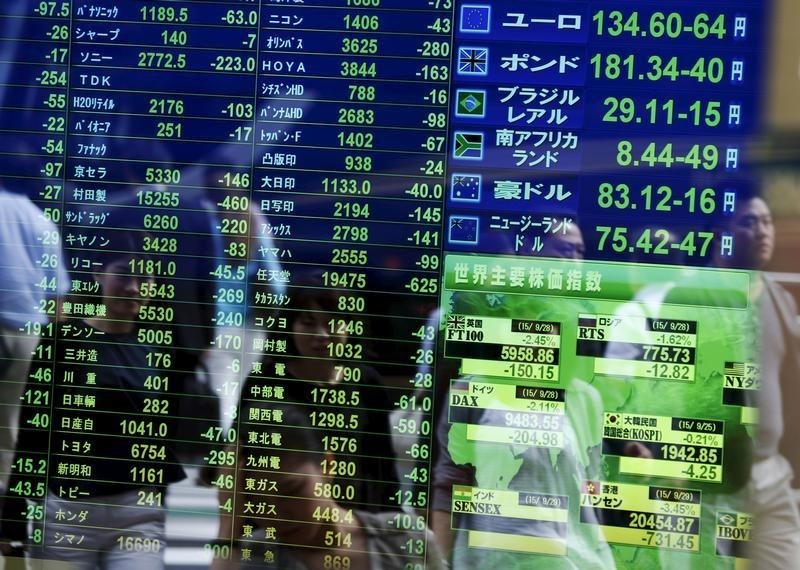By Hideyuki Sano
TOKYO, June 23 (Reuters) - Asian market players generally welcome a decision to move to repo rates as a benchmark for short-term U.S. interest rates, though they are sceptical the planned reference point will end use of scandal-tainted Libor in the foreseeable future.
A committee of large international banks on Thursday voted to adopt an interest rate benchmark from the U.S. Treasuries-backed repurchase agreement market (repo) as an alternative to the use of Libor (London Interbank Offered Rates) in around $150 trillion worth of derivatives. think everyone will take this as a reasonable conclusion," said the head of derivatives trading at a Japanese brokerage. "The repo market is the biggest short-term interest rate market."
The decision was made by the Alternative Reference Rates Committee (AARC), a group of private firms tasked with selecting a new rate at the behest of regulators.
The move came after the Financial Stability Board, a global financial regulation oversight body, recommended reform of interest rate benchmarks following the 2012 scandal on Libor's fixing.
Repo rates are deemed more transparent because they reflect actual traded rates, compared to Libor, which are based on rates reported by traders and are prone to misreporting and manipulation.
Yet some hurdles remain for the new benchmark rates.
"Most repo trading is for a short period. It doesn't look realistic to have a yield curve stretching to six to nine months immediately," said a senior executive at U.S. brokerage in Tokyo.
AN IMPACT IN ASIA?
Indeed, few market players expect Libor to disappear any time soon, given the huge amount of existing derivative transactions, such as interest rate swaps, that use Libor as reference rate.
The AARC decision is unlikely to have significant impact on benchmarks in Asia-Pacific in the near term, market players said.
In Tokyo, a study group concluded in December that Japan will use unsecured overnight call rate as the benchmark.
But some market players say the global benchmark reform could reignite debate on Tokyo Interbank Offered Rates (Tibor), which are often criticised as being kept artificially high to benefit banks making commercial loans at Tibor-linked rates.
Australian authorities changed the method to calculate the benchmark bank bill swap rate (BBSW) in November. Their administration is due to be transferred in August to the Australian Securities Exchange from a financial industry group.
"The changes in the United States with the use of the Libor have no direct impact on BBSW in Australia - they are different benchmarks with different inputs," ASX spokesman Matthew Gibbs told Reuters.
"However, this is consistent with a move by regulators around the world, including in Australia, to encourage the development of alternative benchmarks to provide markets with greater choice," he added.
